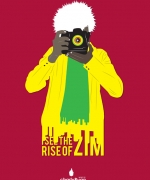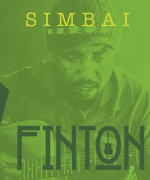Burundi political history and, their stand on the great Lakes
Burundi is a small country situated in the Central East of Afrika, being in the central East of Afrika and its map shaped as a heart Burundi is sometimes called the heart of Afrika. Burundi is neighbouring DRC on the East, Rwanda on the South, and Tanzania on the West without forgetting Zambia on the other end of Lake Tanganyika.
Before the 19 century, the Tutsi, a tall cattle-rearing people probably from the upper reaches of the Nile, infiltrate the area and win dominance over the Batwa and Hutu who were, already in residence and living by pottery and agriculture. During 1860, the Tutsi realm was organized on a feudal basis, with the Tutsi as the aristocracy and the Hutu as their vassals. The Tutsi were the upper class and are mostly herdsmen whereas, Hutu were the lower class and for the most part lived by farming. During all this time it was called Rwanda and in 1894 Von Götzen a Germany missionary entered Rwanda and visited the Rwabugiri’s kingdom - a year later the king died. With Rwanda in turmoil over the succession, the Germans then moved in from Tanzania in 1897 to claim the region for the Kaiser. That was the time Burundi was claimed as a separate kingdom to the south. The entire area was then treated as one colony, known as Ruanda-Urundi. After the outbreak of the European war in 1914, the region was suddenly taken from their hands.
During World War 1 when Belgium was invaded by Germany, the Belgians retaliated in a smaller way in Central Afrika. Belgian troops moved East from the Belgian Congo to occupy Ruanda-Urundi and then right after the war the League of Nations confirmed the existing state of affairs, granting Belgium in 1924 a mandate to administer the colony. From then on, Ruanda-Urundi was linked with Belgian Congo, but colonial rule took a very different form in the two territories. The administration of the Congo was centred in Brussels, while the Ruanda-Urundi administration was left in the hands of the Tutsi aristocracy. The Belgians, observing the distinction between Tutsi and Hutu, make it the very basis of their colonial system. The Hutu are subject to the forced labour which disfigures many European colonies in Afrika, but here it is the Tutsi who supervise them at their tasks, Hutu being 85%, Tutsi 14% and 1% of the Batwa (Pygmies). In 1961, the Urundi kingdom organized for elections where it was won by the joint Hutu and Tutsi party led by Prince Rwagasore, the eldest son of the king, who was then assassinated a few months later, before independence had been formally achieved.
In 1962 Urundi became independent and changed its name to Burundi with Mwambutsa IV, presiding over a government combining Hutu and Tutsi Ministers. In January 1965, Hutu Prime Minister Pierre Ngendandumwe, was assassinated by a Tutsi gunman. In May of the same year, elections bring a Hutu majority to the national assembly. At this point the Mwami’s even-handedness snaps. He disregards the election result and appoints as Prime minister, his Tutsi private secretary. In retaliation, Hutu officers attempt a failed coup where 34 of them are captured and killed. But this incident leads rapidly to a transformed Burundi. In July 1966 the Prince took the crown from the absent father, but before the end of the year he too had been overthrown by his Prime Minister, Michel Micombero and a republic is proclaimed. A power which he yields with ruthless brutality over the Hutus, as a result Hutu authorities attempt an uprising in May 1972. As a response to the uprising at least 100,000 people are killed, among them nearly all Hutus of the professional or educated class, since then Tutsi civil service discrimination against the Hutus has become commonplace, and often provokes outbreaks of Hutu unrest. One such incident was in 1988 in the northern provinces of Ntega and Marangara, which led to another massacre of Hutus, totalling about 20,000 deaths.
The ruling Tutsi minority of Micombero did not last long and was overthrown in 1976 bringing Colonel Jean Baptist Bagaza to power as the second republic President. In 1987, another coup ushered in the third republic Presidency of Major Pierre Buyoya. Due to the 1988 uprising and repression, the new president makes a greater effort than his predecessors to deal with the nation’s ethnic problem. Buyoya takes steps to ensure a Hutu presence in his government by setting up a commission to advise on ways of achieving a new sense of national unity. Buyoya then prepares the nation for its first democratic presidential election, scheduled for 1993 where he expected to win Burundi’s first multiparty presidential election in June 1993, but he is defeated by Melchior Ndadaye, leader of the main opposition party FRODEBU (Burundi Democratic Front), who also wins a large majority in the accompanying legislative elections. The first democratically elected Hutu Merchior Ndadaye forms a conciliatory government giving Tutsi politicians eight places out of twenty-two in his cabinet. But this hopeful development is soon frustrated by his assassination in a Tutsi attempted coup. In response between 25,000 and 50,000 people were killed in both sides due to ethnic violence between Tutsis and Hutus with more than 750,000 Hutu and Tutsi flee the country.
In 1994 the national assembly elects a Hutu president, Cyprien Ntaryamira, who in turn appoints a Tutsi as his Prime Minister. But again he was killed in April 1994 in the airplane of President Habyarimana of Rwanda when it was brought down by a rocket. On 6 April 1994, Silvestre Ntibantunganya yet another Hutu was chosen to replace Cyprien Ntaryamira. In July 1996 president, Sylvestre Ntibantunganya, attends a memorial service for 300 Tutsis butchered by militant Hutu. Amid angry scenes he has to flee for his life. A few days later the Tutsi army seizes power and brings back President Pierre Buyoya. In response to the military coup, sanctions are imposed on Burundi by most of its neighbouring states, including the international bodies, and the rebels group known as FDD (democratic defence force)
is born.
Burundi’s stand in the Great Lakes
They do not interfere with their neighbour’s internal affairs unlike Rwanda. And they focus on their own development peace within the country and in the region. They contributed in the peace keeping in Somalia and elsewhere in the region.
Who is Pierre Nkurunziza?
Pierre Nkurunziza is the current Burundi President from the CNDD FDD party who doesn’t want to respect the Arusha peace accord on Burundi. He was born in December 18, 1963 in Bujumbura and raised up in the north of the country in the province of Ngozi, son of a Hutu father and a Tutsi mother. His father was a governor of two provinces before being killed in 1972. Nkurunziza graduated in 1990 at the University of Burundi, with a degree in physical education. He went on to teach high school and also served as an Assistant Lecturer at the university. In 1995, he narrowly escaped death during the army attack on the university campus that killed some 200 people. After his escape he became active in the conflict and then went on to join the rebel group. In 1998, a Burundian court sentenced him in absentia to death for his rebel activities. Nkurunziza headed negotiations that reached a point of high development by signing a peace accord with President Domitien Ndayizeye in 2003. As part of the agreement, Nkurunziza received immunity from prosecution for war crimes. He later joined Ndayizeye’s cabinet as Minister of Good Governance in November 2004.
In 2005, CNDD-FDD became an official political party.
Under Nkurunziza’s leadership, the party won a decisive victory in parliamentary elections held in July. In preparation for the upcoming Presidential election in Parliament, Nkurunziza was asked to be the CNDD-FDD’s candidate. He accepted the nomination and as the only candidate he won 151 of the 162 ballots cast and was elected President on August 19, 2005. He was formally sworn into office on August 25.
In 2006 he attempted a cease-fire with the only Hutu rebel group FNL (Liberation National Front) remaining outside the peace process, but this was rejected by the group. The truce was soon ignored, however, and intermittent violence resumed. No substantive agreement was reached until May 2008, when the FLN convened with Nkurunziza in Bujumbura and signed another cease-fire. In December of that year, Nkurunziza met with FNL leader Agathon Rwasa and signed a definitive peace agreement. In 2010 Nkurunziza was re-elected with more than 90 percent of the vote following the withdrawal of all six of his challengers. The campaign and election proceedings were marred by violence, contributing to a markedly low voter turnout. Nkurunziza continued to face criticism in his second term over his administration’s treatment of the media and response to public dissent. He garnered additional condemnation for his desire to stand for a third term as president in the 2015 election, something which many, including some within his own party, saw as a violation of the country’s constitution as well as the Arusha Agreement that had paved the way to ending Burundi’s civil war.
Nkurunziza’s supporters countered by claiming that the two-term limit stipulated in both documents was not yet applicable because Nkurunziza had been directly elected only once—to his second term—and argued that his first term, by which he had been elected by Parliament, did not count toward the term limit. Nkurunziza’s plan to stand for president in the June 2015 election, confirmed in late April by the CNDD-FDD, led to many large-scale demonstrations with protesters calling for him to abandon his bid for a third term. The public protests often led to clashes with the police and harsh responses from the government, alarming many in Burundi as well as the international community.
Who did he ascend to power?
He really ascended beyond all his predecessors, as he was loved by all the peoples in the country. They only came to dislike him because of his decision to run for the third term.
How popular are the opposition?
The opposition is popular in Burundi in a way that even the second term was not going to be won if the opposition was not driven away, or threatened to be killed. As for the 2015 elections, the Burundi opposition have gone even stronger than before, they have joined together to fight the common enemy –a Hutu and Tutsi coalition.
Where do Burundians in the diaspora stand?
As far as I am concerned the Burundian diaspora is as firm as the protesters in the country, we are in position to protect the constitution and the Arusha accord that brought our country to peace and trust of all Burundians. We wouldn’t want to see Burundians fleeing the country as we did in the past, we want peace just like in Europe.
Where does the army stand?
The army is kind of neutral for now, we are not that sure about the future, what with the daily protests, as Government is a mixture of the former ruling Tutsi government, the former rebels of CNDD FDD and the former FNL rebels. We have seen their neutrality in the past few days, and have seen how people rejoiced with them during the attempted coup, but today it seems as if they are for the government as well, why? Because there is no way the police can kill people and then they show up later trying to show people that they trying to protect them. At the beginning of the protest you would see how much protesters appreciated the army showing up.



